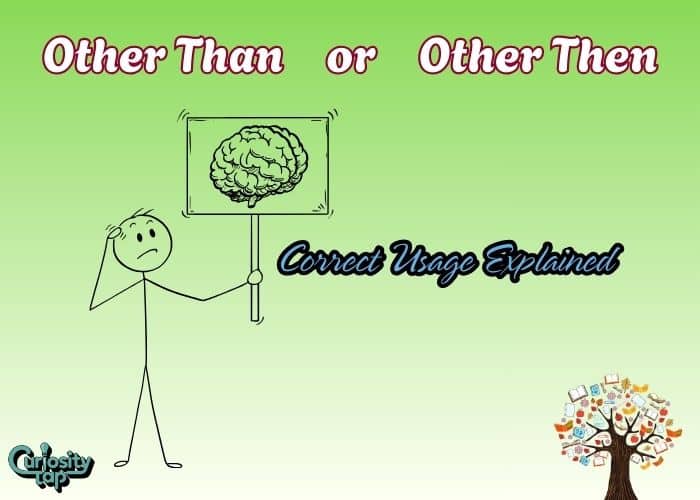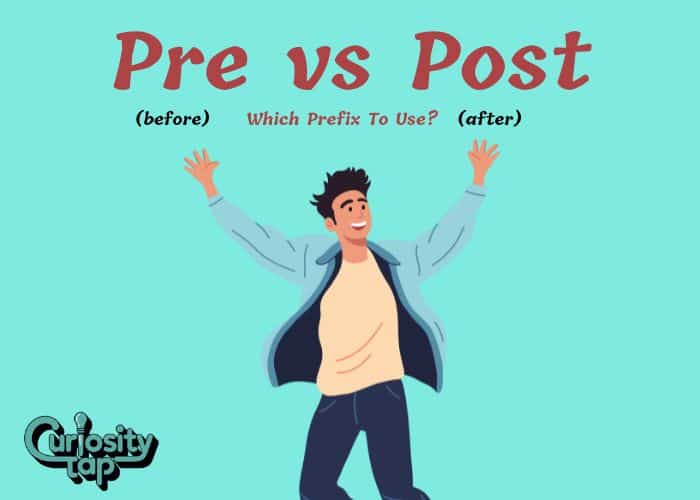Language is full of look-alike phrases that confuse even the most fluent speakers. One such pair is “other than” and “other then.” At first glance, they seem interchangeable, but only one is correct in standard English. Misusing these terms can make your writing unclear or grammatically incorrect.
In this guide, you’ll learn the proper usage of other than, why other then is a common mistake, and how to remember the difference with practical examples, checklists, and FAQs.
Understanding the Correct Phrase
The Role of “Other Than”
The phrase other than means except for or apart from. It is used to exclude something from a group or category. For example:
- I don’t watch any sport other than football.
- She had no hobbies other than painting.
In both cases, the phrase highlights an exception.
Why “Other Then” Is Incorrect
Other then is almost always a typo or misunderstanding. The word then indicates time or sequence (e.g., first we ate, then we left). When paired with other, it loses grammatical meaning. That’s why phrases like “other then football” are incorrect.
Real-Life Example: A Job Application Slip-Up
Imagine this: Sarah, a recent graduate, wrote in her cover letter:
“I don’t have experience in any field other then digital marketing.”
At first glance, it seems fine. But a recruiter immediately noticed the error. Why? Because other then is not standard English. Small mistakes like this can raise doubts about attention to detail.
Had Sarah written:
“I don’t have experience in any field other than digital marketing.”
her statement would have been grammatically correct and professional.
This shows how a simple mix-up between other than and other then can affect credibility in academic, professional, and everyday contexts.
Common Usage Scenarios
1. Academic Writing
In essays and reports, other than is essential for comparisons and exceptions.
- There is little evidence other than anecdotal accounts.
2. Professional Settings
In business communication, accuracy matters.
- The proposal had no issues other than minor formatting errors.
3. Everyday Speech
We use it naturally in conversations.
- I don’t know anyone here other than James.
Quick Comparison Table
| Phrase | Meaning | Correct? | Example |
|---|---|---|---|
| Other than | Except for / apart from | ✅ Correct | No one was invited other than my cousins. |
| Other then | Incorrect phrase | ❌ Wrong | No one was invited other then my cousins. |
How to Remember the Difference
- Think of other than as “except.” If you can replace it with except for, it’s correct.
- Remember that then relates to time or sequence, not exceptions.
- Use a checklist before finalizing:
Checklist for Correct Usage
- ✔ Does the sentence express an exception? → Use other than.
- ✔ Does the sentence describe time or order? → Use then (without other).
- ❌ Never pair other with then.
Pros & Cons of Each Phrase
Other than
- ✅ Grammatically correct
- ✅ Widely accepted in all contexts
- ✅ Improves clarity and precision
Other then
- ❌ Grammatically incorrect
- ❌ Leads to confusion
- ❌ Reduces credibility in writing
FAQs
Is “other then” ever correct?
No. “Other then” is a grammatical mistake. Always use other than for exceptions.
Can I say “other then that”?
No. The correct phrase is other than that. Example: “There were no problems other than that minor error.”
What is a synonym for “other than”?
Common alternatives include except for, apart from, or besides.
Why do people confuse “than” and “then”?
Because they sound similar (homophones). Than relates to comparisons and exceptions, while then refers to time or sequence.
How can I practice using “other than” correctly?
Read professional examples, write practice sentences, and apply the replacement test with except for.
Conclusion
The correct phrase is other than, not other then. Mastering this distinction is more than just grammar it’s about clarity, professionalism, and effective communication. Whether you’re writing an essay, email, or job application, using other than correctly ensures your message is polished and precise.
Call to Action
Want to sharpen your English and write successfully every time?
Check out our Grammar Checker Tool and never second-guess your spelling again!
Read our guide on Common English Misspellings to boost your skills even further.
Sources List
Sources:
- Cambridge Dictionary. (2024). Other than. https://dictionary.cambridge.org
- Merriam-Webster. (2024). Other than definition. https://www.merriam-webster.com
- Grammarly. (2024). Than vs. Then: How to Use Them Correctly. https://www.grammarly.com
Read more knowledgeable blogs on Curiosity Tap
Is this article helpful?

Jackson Pearson is a passionate educator and language enthusiast behind the blog Jackson Pearson. With years of experience in teaching and writing, he specializes in simplifying complex grammar rules, breaking down tricky vocabulary, and crafting learning guides that are both engaging and practical. His mission is to help readers boost their English skills whether they’re beginners or brushing up for fluency. Through every article, Jackson brings clarity, structure, and a spark of curiosity to the world of English learning.



